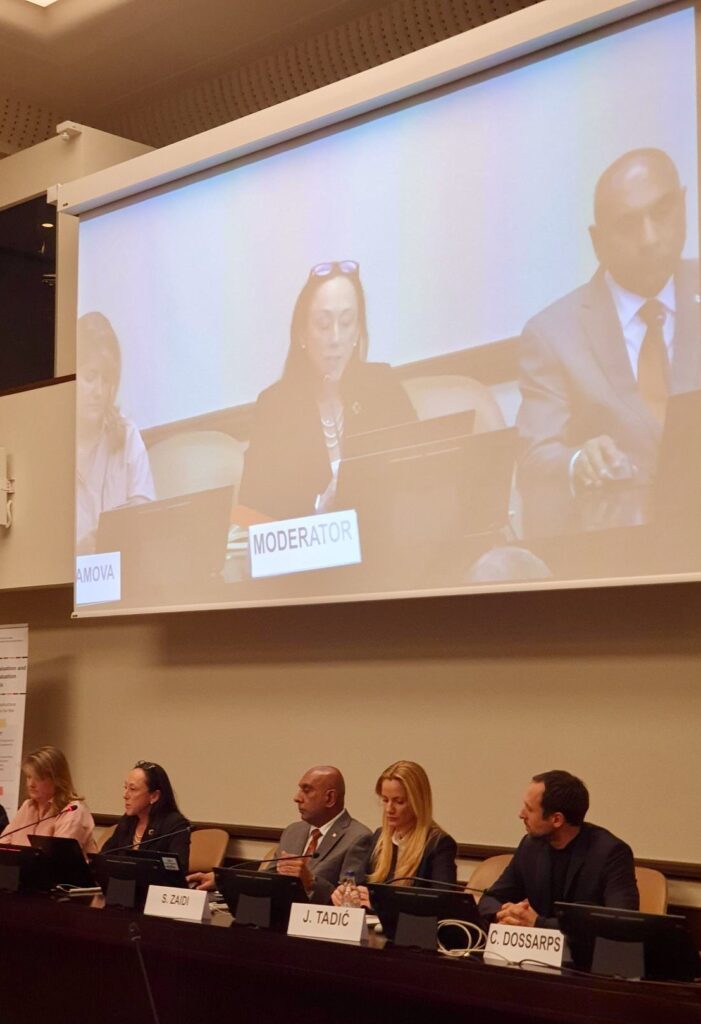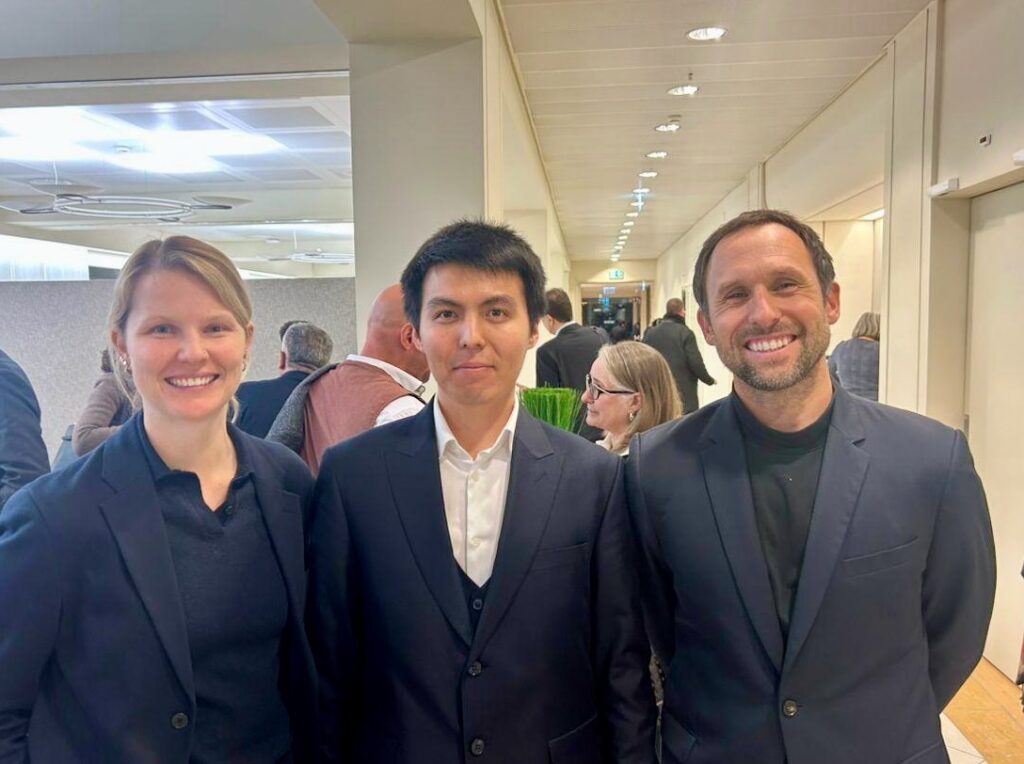This week, we had the privilege of participating in the Ninth Session of the Working Party on Public-Private Partnerships at the Palais des Nations, Geneva, Switzerland. Our CEO, Christophe Dossarps, contributed to the second panel: Harnessing the Potential of Artificial Intelligence (AI) in Public-Private Partnerships and Infrastructure Projects, a discussion that brought together experts from government, academia, and industry to explore the evolving role of AI in shaping PPPs and wider infrastructure development.
The panel explored the transformative potential of AI across the lifecycle of PPP projects. Panellists shared that from project identification and planning to operations and monitoring, AI offers tools that could make decision-making more precise, efficient, and data-driven. Governments could anticipate infrastructure needs more effectively, optimise engagement with stakeholders, and design innovative financial models, including blended finance solutions. AI could also have the potential to reduce transaction costs, accelerate project delivery, and enhance reporting, all of which contribute to more resilient and sustainable infrastructure outcomes.
 Yet, the panel was clear that AI is not without its challenges. Data privacy, ethical considerations, and the digital divide are all critical factors that must be addressed to ensure AI adoption supports long-term sustainable development. Reflecting on this, Christophe emphasised: “We want to see thoughtful engagement with AI to really understand what it brings governments. Thinking about the value creation, costs and effects of the energy requirements to deliver AI to our users is fundamental.”
Yet, the panel was clear that AI is not without its challenges. Data privacy, ethical considerations, and the digital divide are all critical factors that must be addressed to ensure AI adoption supports long-term sustainable development. Reflecting on this, Christophe emphasised: “We want to see thoughtful engagement with AI to really understand what it brings governments. Thinking about the value creation, costs and effects of the energy requirements to deliver AI to our users is fundamental.”
The discussion also highlighted that the value of AI in PPP projects and indeed the wider infrastructure industry, on the availability of good data. As Christophe noted, “Improvement is best measured when data is available, and in this sense, information provides decision-making power.” This underscores the importance of ensuring that AI is integrated responsibly, with careful attention to how data is collected, managed, and used to support transparent, sustainable decision-making.
Overall, the panel offered valuable insights into both the opportunities and responsibilities associated with integrating AI into PPPs. It was a timely discussion, aligned with broader sustainability goals. SIF was proud to contribute to this important dialogue, helping to shape the future of smarter, more sustainable infrastructure development.

SIF Team together with Kyrgyz Republic PPP Expert

